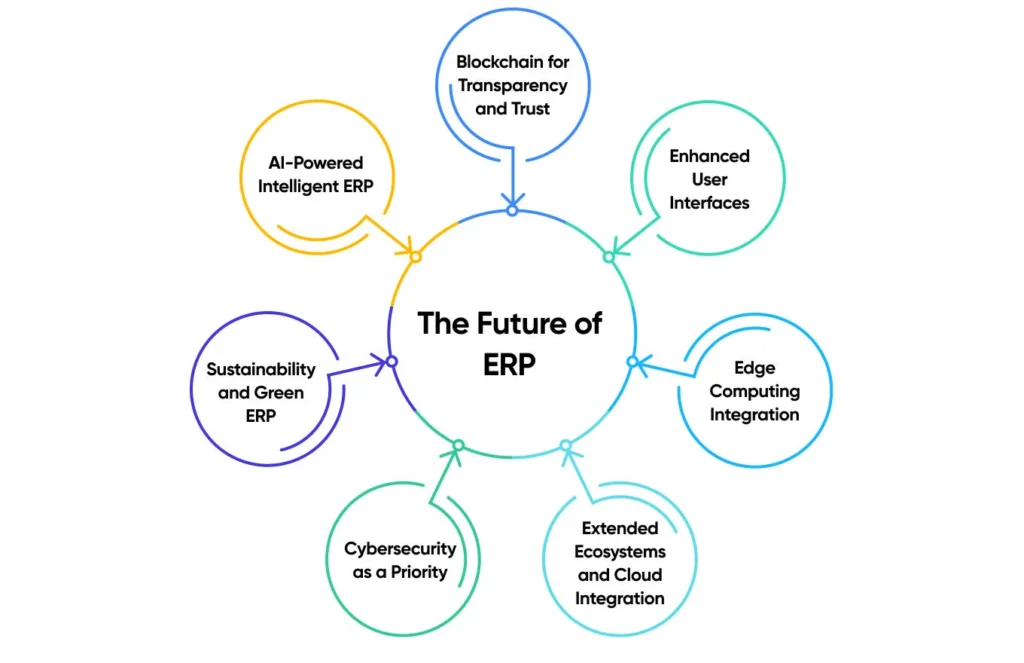The landscape of Enterprise Resource Planning (ERP) systems is rapidly evolving, influenced by advances in technology such as Artificial Intelligence (AI), the Internet of Things (IoT), and more. These innovations are not only reshaping how businesses manage their operations but also promise significant improvements in efficiency and decision-making. This article explores the future trends in ERP and how technologies like AI and IoT will integrate into these systems, with insights from iSky ERP, available at iskycreative.com and isky.ae.
AI in ERP
- Predictive Analytics: AI enables ERP systems to predict outcomes based on historical data, allowing businesses to make proactive decisions. This can lead to optimized inventory management, enhanced forecasting accuracy, and better resource allocation.
- Automated Decision-Making: AI algorithms can automate complex decision processes, reducing the need for manual intervention and speeding up operations. This integration can significantly reduce errors and improve operational efficiency.
- Enhanced User Experience: AI can personalize user interactions with the ERP system, making interfaces more intuitive and responsive, thereby enhancing overall user satisfaction.
IoT in ERP
- Real-Time Data Integration: IoT devices provide real-time data that ERP systems can use to update information instantaneously. This enables more accurate tracking of inventory, machinery, and logistics, leading to better supply chain management.
- Maintenance and Monitoring: IoT can help predict equipment failures and schedule maintenance before breakdowns occur, reducing downtime and maintenance costs. This proactive approach is enabled by continuous monitoring and data analysis through ERP systems.
- Enhanced Operational Visibility: With IoT sensors, businesses can gain deeper insights into their operations, monitoring everything from production lines to environmental conditions. This visibility helps in making more informed decisions and improving operational efficiency.
Beyond AI and IoT
- Blockchain Integration: Blockchain technology can enhance the security and transparency of ERP systems by providing a decentralized ledger for transactions. This can be particularly useful in supply chain management, where verifying the authenticity and status of goods is crucial.
- Cloud ERP: The shift towards cloud-based ERP solutions continues to accelerate. Cloud ERP offers scalability, enhanced security, and cost-efficiency, making it easier for businesses to adapt to changing market demands.
- Mobile ERP: As mobile technology advances, mobile ERP solutions are becoming more robust, providing employees with access to critical business information and processes anytime, anywhere, which enhances flexibility and productivity.
Conclusion The integration of advanced technologies like AI, IoT, and blockchain into ERP systems is setting a new standard in how businesses operate and compete. For companies looking to stay ahead in their industry, adopting these technologies within their ERP systems can provide significant competitive advantages. For more information on how iSky ERP is incorporating these cutting-edge technologies, visit our websites at iskycreative.com and isky.ae. These innovations are not just enhancing current capabilities but are also paving the way for entirely new business models and strategies in the digital age.
